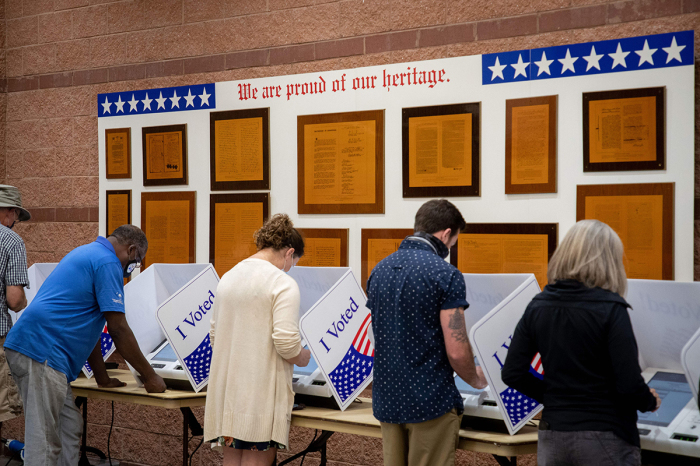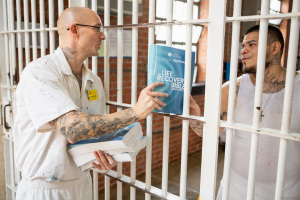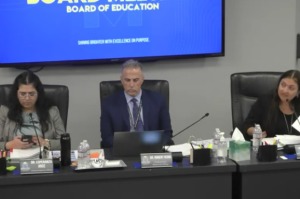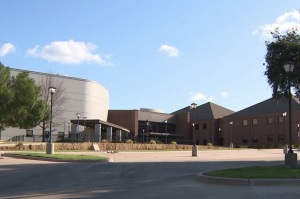Swing district voters prefer candidates who emphasize economic issues over abortion: poll

A new poll reveals that swing voters prefer candidates who focus on economic issues instead of abortion, with less than one month remaining until the midterm elections.
Conducted by Schoen Cooperman Research, the poll asked voters in 85 swing congressional districts about their thoughts on political issues facing the country and their intentions on how they plan to vote in the midterm elections.
Schoen Cooperman Research, co-led by frequent Fox News guest and Democrat pollster Doug Schoen, defines a swing congressional district as one that the nonpartisan election handicapper Cook Political Report rates as either a “tossup,” “leaning” or “likely” to support one party or the other.
These districts constitute a small fraction of the 435 congressional districts that make up the United States House of Representatives, most of which Cook Political Report identifies as “safe” for the incumbent party. The Cook Political Report currently rates 189 congressional districts as Safe Republican, 11 districts as likely Republican, 11 districts as leaning toward Republicans, 31 districts as toss-ups, 16 districts as leaning toward Democrats, 15 districts as likely Democratic and 162 districts as Safe Democratic.
In other words, the swing districts will determine which party controls the House after the midterm elections. When initially asked whether they would support the Democratic candidate or Republican candidate in the upcoming election, 46% of voters in swing districts expressed support for the Democrat and 46% said they would vote for the Republican.
The survey asked swing district voters which party they trusted more to handle a myriad of issues facing the U.S. One question inquired as to whether respondents would prefer a candidate who “prioritizes economic issues such as jobs, taxes, and the cost of living” or a candidate who “prioritizes societal issues such as abortion, gun safety, and democracy.” Sixty-four percent of those surveyed said they would support a candidate who focuses on economic issues compared to 27% who would prefer a candidate prioritizing societal issues.
A plurality of swing district voters (47%) told pollsters that they trusted Republicans to handle the most important issues facing the country compared to 43% who trusted Democrats more. Exactly one-half of swing district voters indicated that they trusted Republicans more than Democrats to get inflation under control, while 32% said the opposite. Republicans also had a 7-point edge over Democrats in earning swing district voters’ trust to manage the economy.
Republicans enjoyed a 7-point advantage over Democrats on handling legal immigration and lowering the crime rate while holding 2-point leads over Democrats on addressing illegal immigration, election integrity and “upholding and safeguarding democratic norms.” Swing district voters were evenly split on which party would make better decisions on how to tax Americans fairly.
Only the issue of abortion do swing district voters trust Democrats more than Republicans. Nearly half (49%) of respondents asserted that they trusted Democrats more on the topic that has taken center stage following the Supreme Court’s Dobbs v. Jackson Women’s Health Organization decision determining that the U.S. Constitution does not contain a right to abortion, while 30% trust Republicans more on the issue.
Meanwhile, majorities of swing district voters either fully or partially blame President Joe Biden and congressional Democrats for inflation and rising prices (73%), the surge of illegal immigration at the U.S.-Mexico border (66%) and increasing crime rates (57%). The poll also surveyed swing district voters about which issues they viewed as most important in determining their vote for U.S. Congress. Respondents could select up to three issues.
Forty percent of swing district voters included inflation and rising costs as an issue that will determine their vote in the midterms, followed by 20% who cited jobs and the economy as one of their most important issues, 17% who listed “reproductive rights” as one of their top issues, and an additional 17% who had concerns about Medicare and Social security.
Climate change and the environment (16%), immigration (16%), border security (16%), gun violence (14%) and healthcare (13%) rounded out the top 10 issues determining who battleground district voters will support in the midterms. Other issues of importance to these voters include national debt and the budget deficit (11%), violent crime (10%), taxes (9%), affordable housing (9%), fighting crime (8%), voting rights (7%), protecting the Second Amendment (6%) and protecting democracy (6%).
Five percent or less of those surveyed identified the following issues as determinative of their vote in the midterm elections: Education, prescription drug prices, election integrity, the Russia-Ukraine war, infrastructure, the coronavirus pandemic, money in politics, foreign policy, fighting terrorism, improving public education and critical race theory in public schools.
Overall, 57% of swing district voters disapprove of Biden’s job performance and 58% disapprove of Biden and the Democrats’ handling of the economy. An overwhelming majority (95%) characterized inflation and rising prices as a concern and just 23% believed that Biden and the Democrats were doing enough to address those problems. Eighty-nine percent of voters residing in battleground districts expressed some level of concern about violent crime in the U.S.
When asked if they agreed that “Joe Biden and the Democrats are soft on crime,” 54% of voters in battleground districts answered in the affirmative, while 40% disagreed. A narrow majority of swing district voters (51%) maintained that they would feel safer if more Republicans were elected to office and 39% disagreed.
At the end of the survey, pollsters once again asked swing district voters whether they intended to support the Democrat or Republican candidate in the 2022 midterms. In the “generic ballot re-test,” 48% of swing district voters now supported Republicans and 44% planned to vote for Democrats.
A poll conducted last month by ABC News and The Washington Post found a more significant 21-point lead for Republicans in districts rated as at least somewhat competitive by the noted political website FiveThirtyEight.
While FiveThirtyEight’s Deluxe Model, which predicts the outcome of elections based on “polls, fundraising, past voting patterns” and the opinions of political experts, gives Republicans a 70% chance of taking control of the U.S. House, the model gives Democrats a 67% chance of keeping control of the U.S. Senate.
The RealClearPolitics average of polls asking voters nationwide which party they want to control the U.S. Congress finds Republicans with a 0.9-point lead over Democrats.
Ryan Foley is a reporter for The Christian Post. He can be reached at: ryan.foley@christianpost.com




























